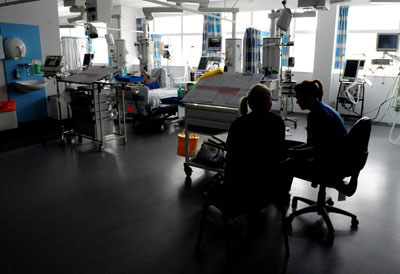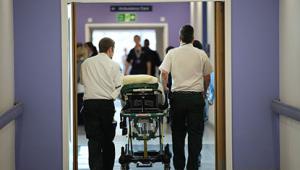By Richard Johnstone | 1 June 2011
The government’s health reforms could reduce accountability for public spending in the NHS, the King’s Fund think-tank has warned.
 GP consortiums are
due to take over the commissioning of £60bn of NHS services from primary care
trusts under the stalled Health & Social Care Bill. But a report from the
King’s Fund says the consortiums have ‘weak’ governance arrangements that lack clarity
on how they will be accountable to the public.
GP consortiums are
due to take over the commissioning of £60bn of NHS services from primary care
trusts under the stalled Health & Social Care Bill. But a report from the
King’s Fund says the consortiums have ‘weak’ governance arrangements that lack clarity
on how they will be accountable to the public.It adds that the reforms place an ‘over-reliance on weak and unproven accountability relationships’, giving ‘significant cause for concern’ about clear accountability of NHS public expenditure.
It suggested accountability could be improved by giving more power over GP consortiums to local health and wellbeing boards, which are also being created by the Bill.
The report says that strong internal governance is needed to fill the gap left by the Department of Health reining in its performance management work. The requirements for this should be set out as a matter of urgency, as pathfinder consortiums are already being established.
The King’s Fund also warns that plans to make Monitor the economic regulator for the whole of the NHS would ‘leave accountability in the hospital sector significantly weakened’. If the changes go ahead, measures would be needed to strengthen the role of foundation trust boards in overseeing the performance of hospitals and holding senior staff to account.
Anna Dixon, director of policy at the King’s Fund, said: ‘The pause in the legislative process provides an opportunity to look again at these issues and strengthen accountability in the health system to drive improvements in performance and ensure that public money is well spent.’
The Foundation Trust Network said that the experience of foundation trusts would be critical when the reforms were implemented.
The network is today taking on an independent status, having previously been part of the NHS Confederation.
Chief executive Sue Slipman insisted that network members would ‘fulfil their responsibilities with diversified lines of accountability’ including to patients, taxpayers and the public through the regulator.
She added: ‘Foundation trusts have already pioneered a more independent way of working without direct Whitehall control, and this experience will be invaluable as the whole health service gains the flexibility to adapt to local circumstances.’






















